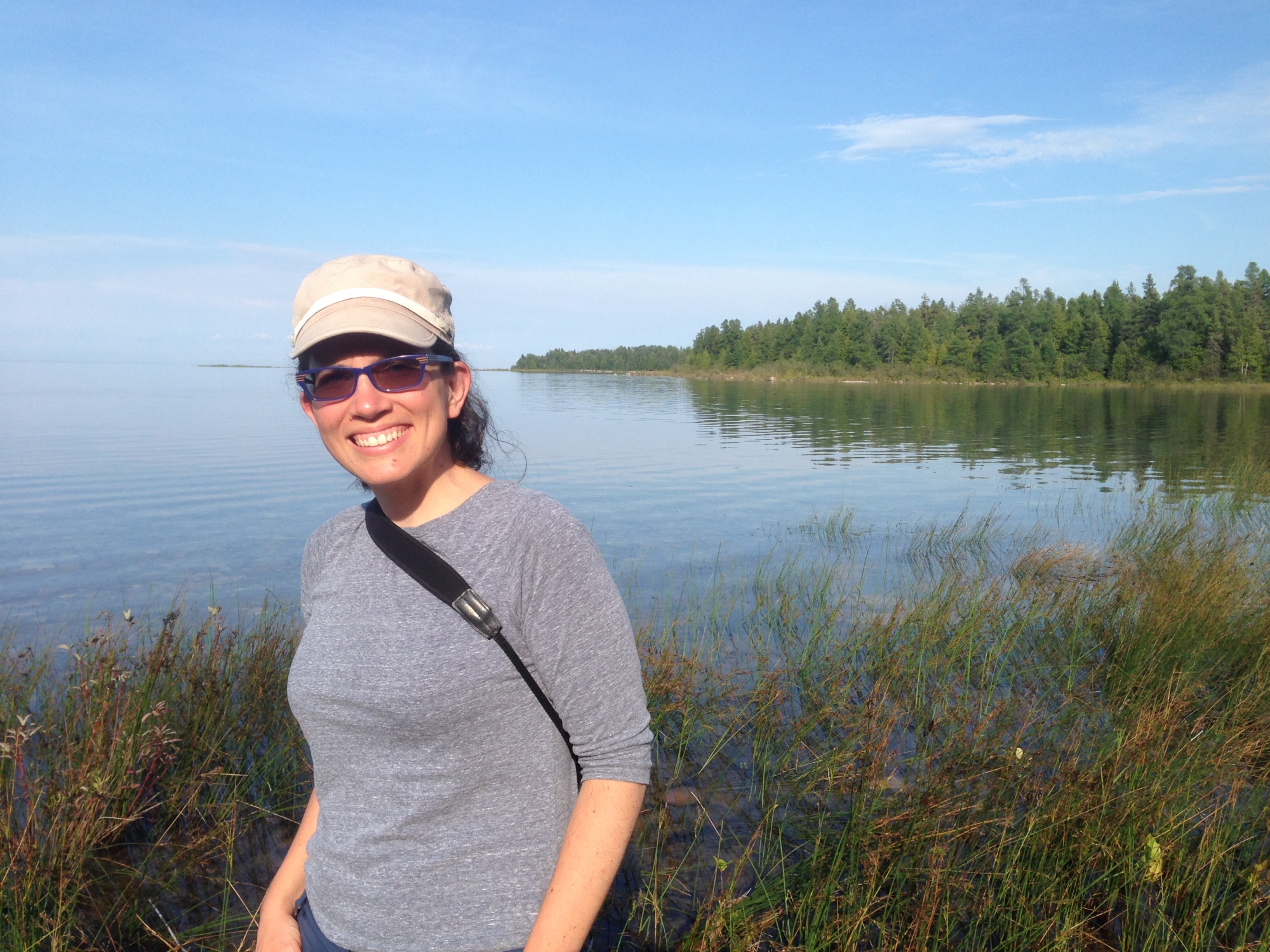The way forward in tackling the diversity of issues facing wildlife in the Canadian Arctic, say University of Windsor researchers Christina Semeniuk and Oliver Love – is in strong collaboration, integration of both scientific and Indigenous approaches, and seeking community-based solutions.

Dr. Oliver Love (left) with collaborator Dr. Grant Gilchrist of Environment and Climate Change Canada in 2019 studying common eider ducks at East bay island, Nunavut
With the third-year renewal of a $360,000 collaborative research award with Environment and Climate Change Canada (ECCC), Dr. Love and Dr. Semeniuk, researchers from the Department of Integrative Biology and the Great Lakes Institute for Environmental Research (GLIER), and a team of researchers are examining whether species of conservation concern such as polar bears, seabirds and shorebirds have the capacity to respond to the rapid change being observed in a historically stable Arctic.
The team asks how the behavioural and physiological responses of wildlife determine whether they succeed or fail.
“Essentially, we can tackle three key questions with this type of multi-disciplinary teamwork approach. How do organisms respond to climate change? Which individual, population or species responses translate into success? Can we then predict who will be the winners and losers as the Arctic continues to change?” says Love, who holds a Canada Research Chair in Integrative Ecology.
According to Predictive Ecologist Semeniuk, what really sets this work apart from past projects is the diversity of data.
“We can use a diversity of data collected over decades to build predictive models that forecast how and why individuals, populations and species will be affected by current and projected climate change.”
Grant Gilchrist, the lead ECCC Arctic seabird research scientist on the team, says it is important to consider the government perspective.
“Successful collaborations between academics and government like this one are absolutely key to coming up with applied solutions to complex environmental problems,” says Dr. Gilchrist.
Dominique Henri is an ECCC social scientist interested in Indigenous knowledge systems and northern sustainability.

Predictive Ecologist Dr. Christina Semeniuk is forecasting how Arctic species such as Polar bears and eider ducks will be impacted by ongoing climate change
“The application of Inuit perspectives and ecological knowledge into the work allows for a better understanding of how wildlife and northern communities will navigate the effects of climate change,” says Dr. Henri.
Paul Smith is the Arctic shorebird research scientist on the team.
“The extensive training program for the multitude of student- and Inuit community researchers funded by this award has been foundational to the ongoing success of the team’s collective work,” says Dr. Smith.
At the end of the day the collaborative award extends far beyond academia and has important wildlife co-management benefits, says ECCC Polar bear research scientist Evan Richardson.
“The team’s predictive work is helping to inform the Inuit-led planning of two marine protected areas around Southampton Island and Lancaster Sound to protect ecosystems that support a diversity of culturally important marine mammals, birds and fishes,” says Dr. Richardson.
Climate Change is a complex and multifaceted challenge, says K.W. Michael Siu, University of Windsor’s Vice President, Research and Innovation, which requires diverse and comprehensive data and inputs to inform and enable the scientific community to come up with solutions that mitigate its impact.
“This requires extensive collaboration and teamwork, and I thank ECCC in its generous funding to Drs. Semeniuk and Love in their work,” says Dr. Siu.
Dean of Science, Chris Houser says building strong and sustainable partnerships with ECCC and Indigenous communities is critical to our ability to address climate change impacts in the Arctic and throughout the rest of Canada.
“This study is an exciting and important opportunity to apply leading-edge science at the University of Windsor to wildlife management and support community-based solutions,”.
Semeniuk and Love hope that the ongoing success of this collaborative award demonstrates the vital importance of generating formal, long-term funding partnerships between academia, government and northern communities so that teams can work together to study emerging issues facing at-risk Arctic wildlife.
“Investment that supports integration of the complementary approaches of these three groups is key to assessing how Arctic wildlife and the communities that depend on them can continue into the future”, says Semeniuk.
